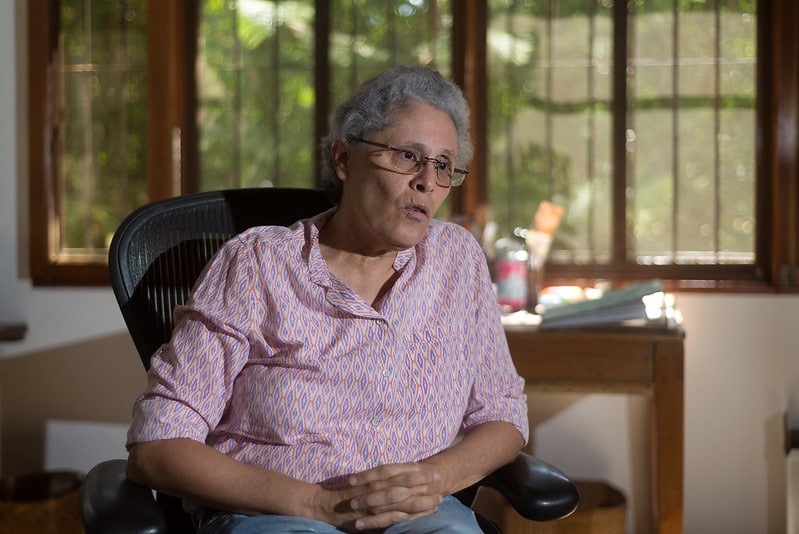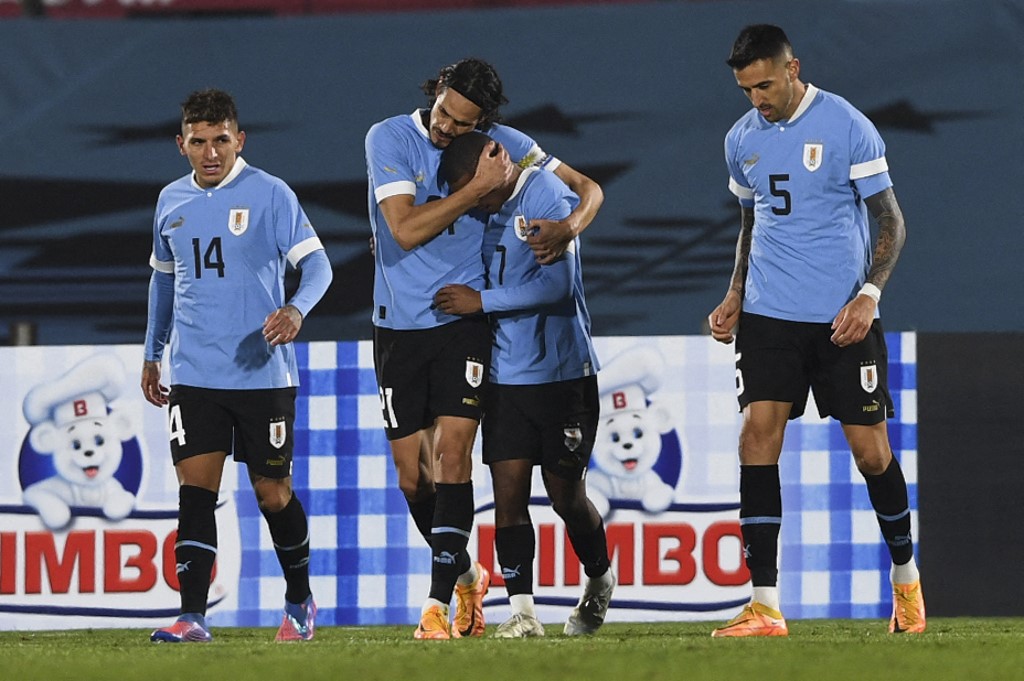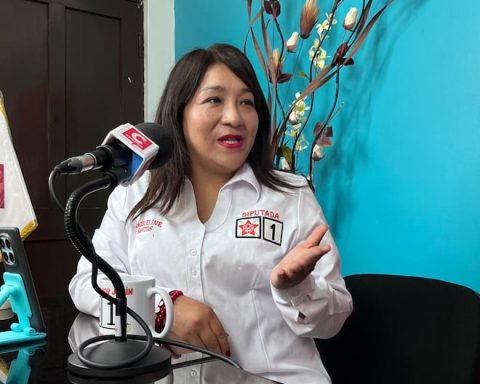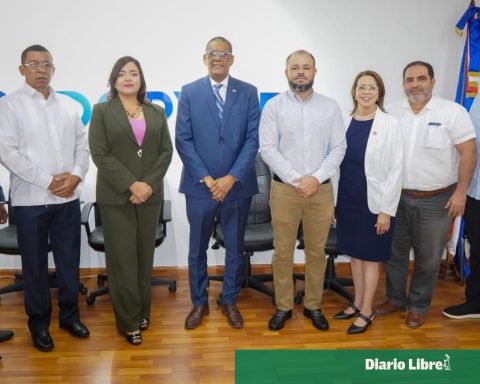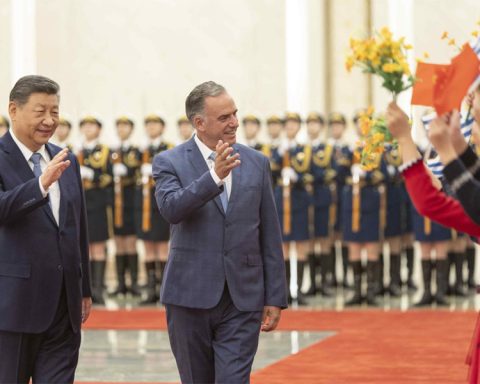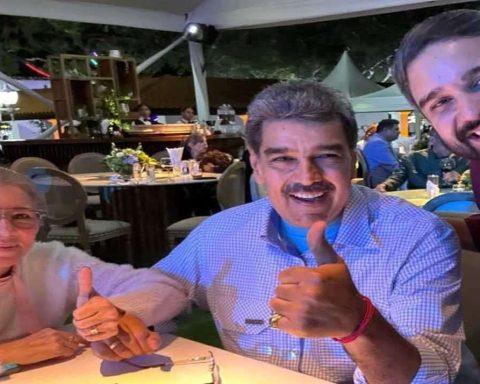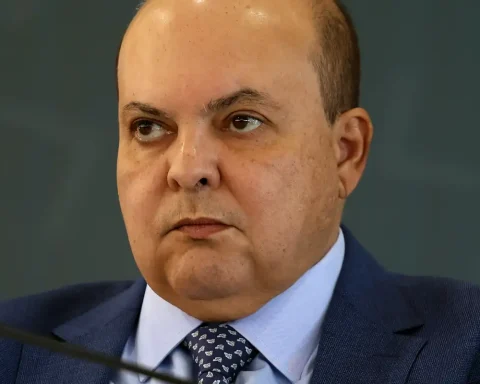The former Sandinista commander, Dora María Téllez, who will serve one year this Monday, June 13, in the Chipote prison in Managua, cannot see the edge of her feet. And it is not because her sight fails her to that extent, but because the isolation cell where she is confined remains in darkness 24 hours a day.
Living in the dark in a small dungeon, with meager food rations, with anemia that produces white spots on her arms, and without adequate medical care, is not the worst thing for this former guerrilla who, as Nicaragua’s Minister of Health in the 1980s, was a pioneer in Latin America in the execution of gender policies in a deeply sexist region.
The worst of all her shortcomings in prison is that her jailers have stripped her of a passion: reading. As a child, she read literature, poetry, history, philosophy and politics. Today her custodians confiscate the books that her family and friends send her. Her order is to keep her isolated from the world.
In the circles of relatives of Nicaraguan political prisoners, it is known that Dora María has lost a lot of weight, that she is very emaciated and that a prison doctor prescribed an ointment, Meladinina, to treat the spots on her skin, which only made her worse. the bud. Police question her almost daily. She claims to be a human rights defender and remains silent.
Those who have Dora María there, in Chipote, subjected to a brutal prison regime, are her former comrade-in-arms and current president of Nicaragua, Daniel Ortega, and his wife, Vice President Rosario Murillo, considered the hand that moves the threads of power
The excessive cruelty with which this disputed ruling couple has treated Dora María and the 182 other political prisoners in Nicaragua makes them “responsible for crimes against humanity,” according to the Inter-American Commission on Human Rights.
Psychiatrist Ignacio Maldonado, who met Dora María Téllez and the Ortega-Murillo couple in Nicaragua in the 1980s, is very concerned about the situation in which the former guerrilla commander lives and the fact that her jailers are Daniel and Rosario, two “ psychotic”.
“I see in Daniel and Rosario a great change with respect to what they were before. What they do today seems sinister to me. Daniel is revealing an increasingly psychopathic and narcissistic personality, completely focused on himself, and it is very likely that there is a pathological bond in the couple and that the two feed off each other’s hunger for excessive power and the psychopathy they have, “says Maldonado. in interview.
Maldonado, who studied psychiatry in his native Argentina and went into exile in Mexico in the seventies, had close contact at that time with Central American revolutionaries who had made the Mexican capital a meeting point under the protection of the PRI governments of those years.
Between 1975 and 1976 Téllez lived in Mexico awaiting a trip to Cuba for military training and a course in combat surgery.
She had completed three years of medical school in the city of León, but abandoned her studies when she became convinced that it was better to combat the causes, and not the symptoms, of the public health debacle in a country subjected by the dictatorship by Anastasio Somoza.
Maldonado remembers that when she explained why she left her medical degree, she said that in her practices in an office she treated children with severe malnutrition, but she could not cure them. They were victims of misery and the social insensitivity of the dictatorship, and it was this that had to be fought.
In college, she joined the Sandinista National Liberation Front (FSLN) and on August 22, 1978, at age 22, she was Commander Two (Zero was Eden Shepherdess and the One, Hugo Torres) of the seizure of the National Palace, where Congress was in session, by a command of 25 guerrillas who achieved the release of 50 Sandinista political prisoners and the payment of a ransom of 500,000 dollars to later fly to Panama and Venezuela.
After the triumph of the Sandinista revolution, on July 19, 1979, Dora María became Minister of Health, a position in which she was advised by the Mexico-Nicaragua mental health team coordinated by Dr. Ignacio Maldonado and Sylvia Bermann, also a psychiatrist. and Marie Langer.
Maldonado says that she was a very young minister, about 25 years old, ‘she had read everything one can read at that age’, she was shrewd, perceptive, very intelligent, with a clear social commitment and very visionary on issues such as protection of women, children and the family. She asked her team to help her design policies against domestic violence and machismo “with a preventive and, of course, feminist approach.”
And those issues, says the Mexican-Argentine psychiatrist, were very advanced at that time, which strongly caught his attention.
“Our collaboration with the Sandinista government lasted throughout the 1980s —Maldonado points out— and contact with her was always fundamental because she perfectly understood mental health problems and, what’s more, he had an enormous ability to get things going.”
The role of Mexico
As persecuted by the Argentine military dictatorship of the 1970s, as a political exile and as an admirer of Téllez’s human qualities and social commitment, Maldonado considers that the Mexican government must intercede with Ortega to free the former guerrilla commander.
The psychiatrist, who has treated dozens of victims of violence as a therapist at the Latin American Institute for Family Studies, calls on President Andrés Manuel López Obrador so that, in line with the Mexican tradition of protecting the politically persecuted , deals with the case of Dora María and, through her, of the political prisoners in Nicaragua that has been verified by the United Nations High Commissioner for Human Rights (OHCHR), Michelle Bachelet
“I ask the president to intercede with Nicaragua to free Dora María, due to the deterioration of her health and for what she represents. She is a paradigmatic figure of the Sandinista revolution and of the fight against authoritarianism,” Maldonado points out.
Bachelet recently indicated that she has sued the Nicaraguan authorities “to release political prisoners.” Maldonado urges López Obrador to support Bachelet’s demand and request the release of Dora María and the political prisoners that the OHCHR has confirmed.
Dissident of authoritarianism
In the years of the revolution and the first Sandinista government, Dora María was close to Ortega. The two of them, along with Daniel’s brother, Humberto, headed the FSLN’s “third party” current, which proposed extending the war to the cities and mediated between the other two factions: Prolonged People’s War and Proletarian Tendency.
Daniel Ortega, one of the nine FSLN commanders, was the coordinator of the Government Junta formed after the overthrow of Somoza and later was president of Nicaragua between 1985 and 1990.
Many of those who knew Daniel Ortega in the 1980s intuited the authoritarian drift that the Sandinista commander was to take after losing the 1990 presidential elections to the opposition Violeta Chamorro.
“I saw authoritarian traits in him -says Maldonado-, the other commanders talked, exchanged opinions and he tried to impose”.
Ortega took 17 years to return to the presidency. He did it in January 2007, after taking over the structures of the FSLN and expelling the former Sandinista commanders who demanded to democratize the organization.
In 1995, after studying History, Dora María founded; along with other leaders, such as Sergio Ramírez, the Sandinista Renovation Movement, which unleashed the fury of Ortega and Murillo.
Since 2007, Ortega has remained in power with the help of the National Assembly, the Judiciary, and the Police, which he controls with an iron fist and has built an autocratic and repressive regime that closed democratic spaces and that Dora María considers “a family dictatorship.
The regime seemed to collapse in April 2018, when massive protests against Ortega broke out in Nicaragua, which were violently repressed by police and paramilitaries, who murdered 355 people.
Dora María Téllez was a critical and incisive voice that repudiated “the repression at gunpoint and bullets” of the Ortega-Murillo couple. The international press highlighted her as a charismatic and courageous opposition leader, who is not afraid of dictators and who, just as she fought Somoza with a rifle, now fought with words against the powerful couple.
Her relatives say that, more than Ortega, the one who targeted her was Murillo, who does not forgive her for her criticisms or the loudness they reach in Nicaragua and internationally, nor the solidarity that the former Sandinista commander showed in 1998 with Zoilamérica. Nárvaez, who reported that Daniel, her stepfather, raped her since she was ten years old.
Last year, weeks before being arrested, Dora María reactivated the issue by stating that “the complaint that Zoilamérica filed against Daniel Ortega is still on the table, in the face of which Rosario Murillo (the young woman’s mother) has remained silent and has arranged (protected) Daniel.”
For Maldonado, the former Sandinista Minister of Health is a pioneer of feminism in Latin America and a full-time defender of women’s rights. She has never shaken her voice to denounce “the dictatorship” for imprisoning hundreds of women and allowing them to be raped, tortured and sexually abused by police and paramilitaries.
Tellez was arrested by the Police on June 13 of last year along with the political leader Ana Margarita Vijil. Last February, in questionable trials to which her lawyers had restricted access, both were found guilty of “conspiring to undermine national integrity.”
Vijil was sentenced to ten years in prison and Dora María to eight. They were two of the victims of a wave of arrests that the regime unleashed in 2021 before the presidential elections in November, in which Ortega won a comfortable victory with which he secured his third consecutive re-election. All the opposition pre-candidates -among them Cristiana Chamorro, who led the polls- were, and continue to be, in jail.
The Ortega-Murillos, says Maldonado, have shown a vengeful political management, what predominates in them is revenge, and they have been “very mean” with the political prisoners, who are being punished “in a brutal way”, in similar dungeons. to those of the Somocista dictatorship.
“Why be so angry with Dora María? -the psychiatrist wonders, and points out-: I think it’s because of what she represents, because she proposes democracy and respect for human rights, because of her feminism. All this is not tolerable for a person like Daniel Ortega, who is a failed revolutionary.”
Instead, he adds, Dora María Téllez “is a person with many talents in whom I recognize the healthiest traits of a revolutionary process in which she participated with an enormous level of solidarity and empathy with the human being.”
This text was originally published in Process Magazine, from Mexico.
